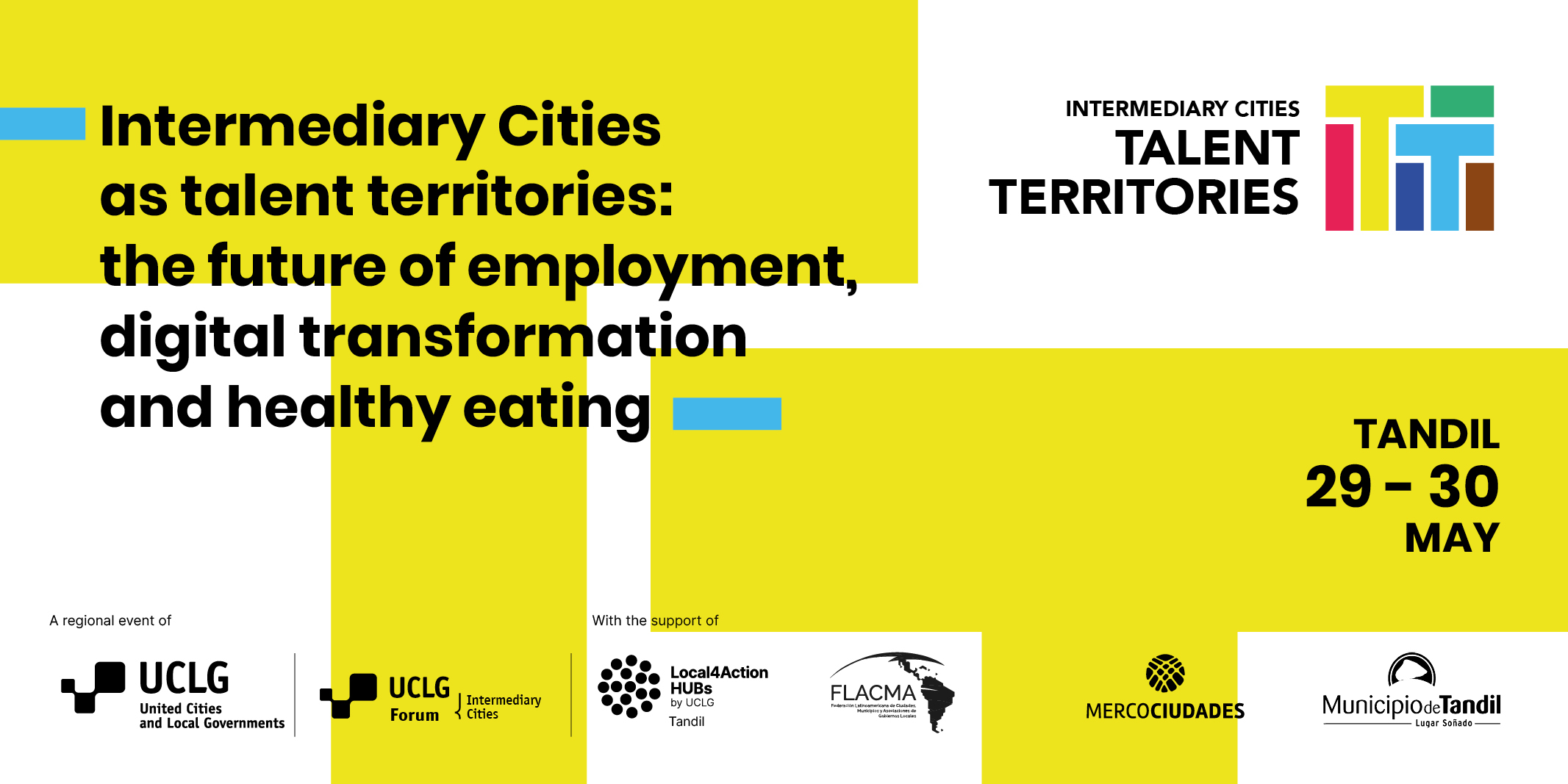As the World Forum of Intermediary Cities readies itself for its third convening, we zoom in on Latin America as a region of particular interest to observe intermediary cities’ state of evolution. To feed into this UCLG policy agenda, the city of Tandil (Argentina) will host a regional event on May 29th and 30th, to discuss Food Systems within the conjuncture that is asking us the transformation of our models, as compiled in the UCLG Pact for the Future of Humanity, through the enablers of talent and digitalization.
The Kutahya declaration adopted at the Second World Forum of Intermediary Cities has been an important call from Intermediary Cities for a world that cares for its citizens, that continues strengthening the human dimension of our systems, and that veils for the caring of the life systems with their urban-rural components.
Following this mandate, Intermediary Cities have been inspiring a drive for a change of model and driving through them the means for action. A new model of production and consumption, but also a new model in the way of living. Building on the food crisis as a reflection of the need to change these models, Intermediary Cities have been at the forefront of implementing the green growth policies that need to accompany degrowth policies.
When the COVID19 pandemic spread, it shook employment like no other global event in recent times. Central Business Districts were highly brought into question when at historic high levels of production, the need to travel to a densely packed part of the city was juxtaposed with the benefits of a cleaner environment. At this point in time Talent went back to the Intermediary cities thanks to the digital transformation and the emergence of new digital assets. As the rural-urban linkage–ever present in Intermediary Cities–has heightened its value in providing a fertile space to develop talent and innovative work, Intermediary Cities work through it to produce the change of model.
Currently, a second process is fastly shaping the way work relations are shaped in society. The irruption of Artificial Intelligence and the Internet of Things has revolutionised the approach to engaging with work practices, creating both redundancy at the same time as opportunity. The city of Tandil has proven itself a promoter of a change of model based in developing the capacities of people, innovating in the management of productive activities, and accompanying Small and Medium Enterprises in their growth path. This local experience has awarded Tandil the distinction of becoming a Local4Action HUB, a key UCLG program that recognizes and amplifies the role of LRGs in the acceleration of the global development agendas through the power of collective action, shared ownership, and international cooperation. Therefore, the Local4Action HUB Tandil is powering this regional gathering of the World Forum of Intermediary Cities with an exemplary initiative to learn from, get inspired by and join in.
With a primary focus on Latin America, this event will see high-level participation from Mayors of the region as well as participation from a delegation of representatives from Africa, Asia and European intermediary cities. The event is convened by the City of Tandil, with the support of UCLG World Secretariat, FLACMA and Mercociudades, and aims at exploring the pathways of concrete transformation towards new models more sustainable, that enhances and unlocks the resilience potential of Intermediary Cities of the world.


